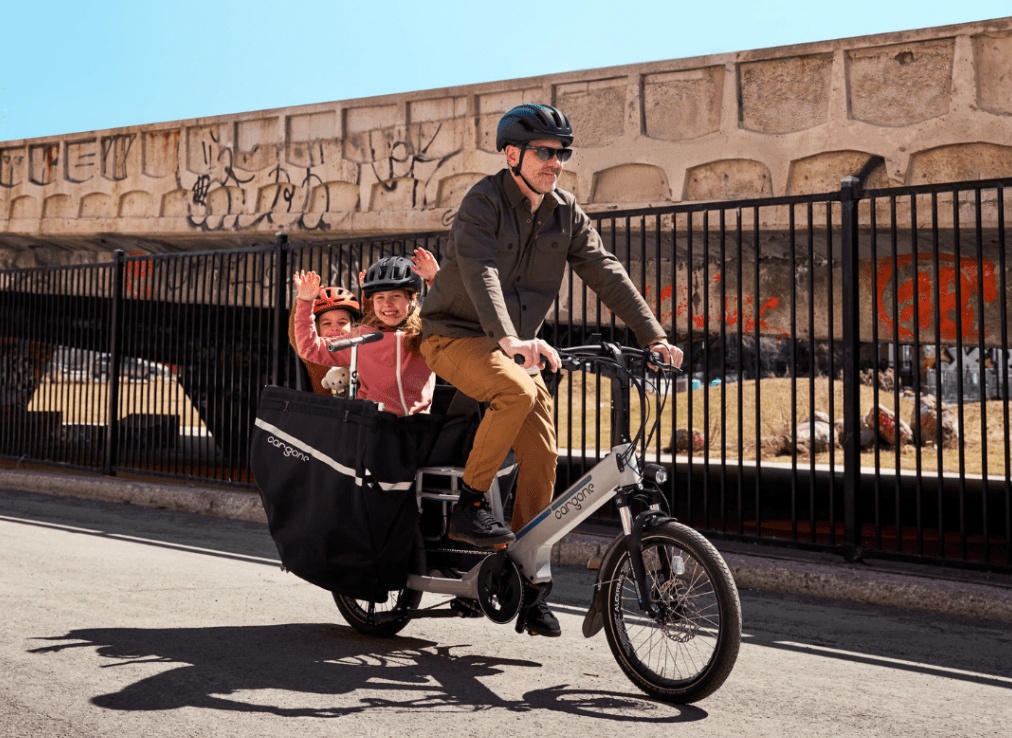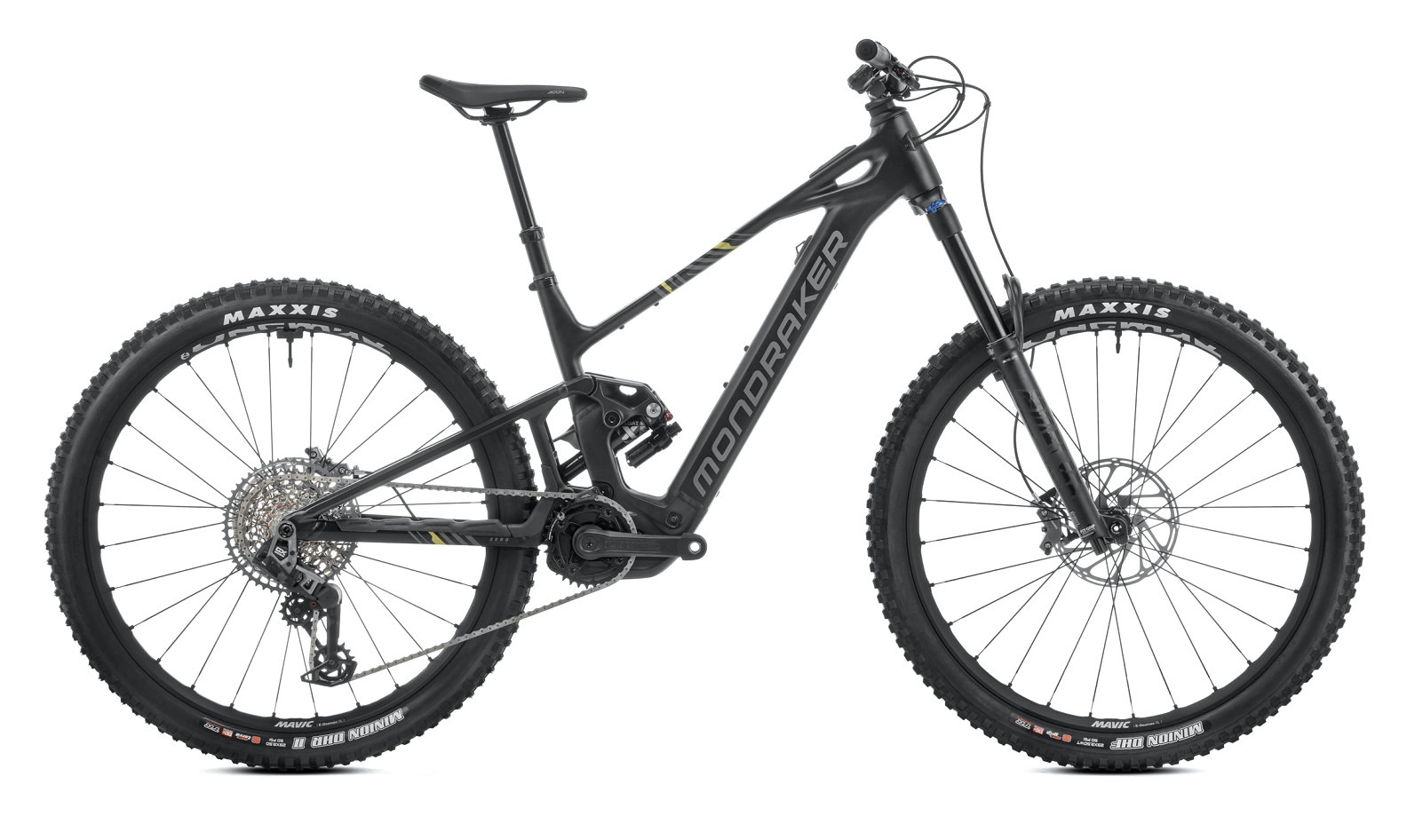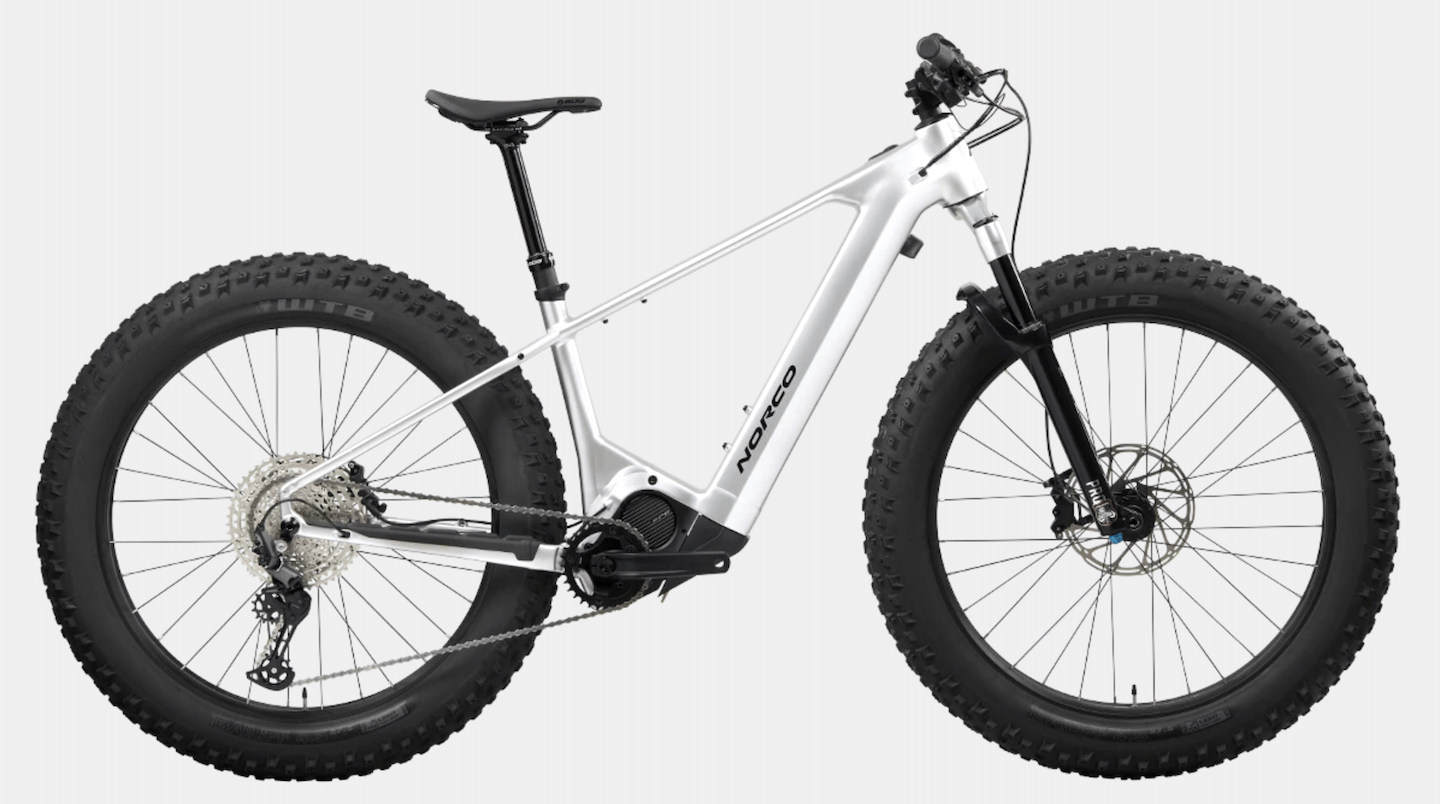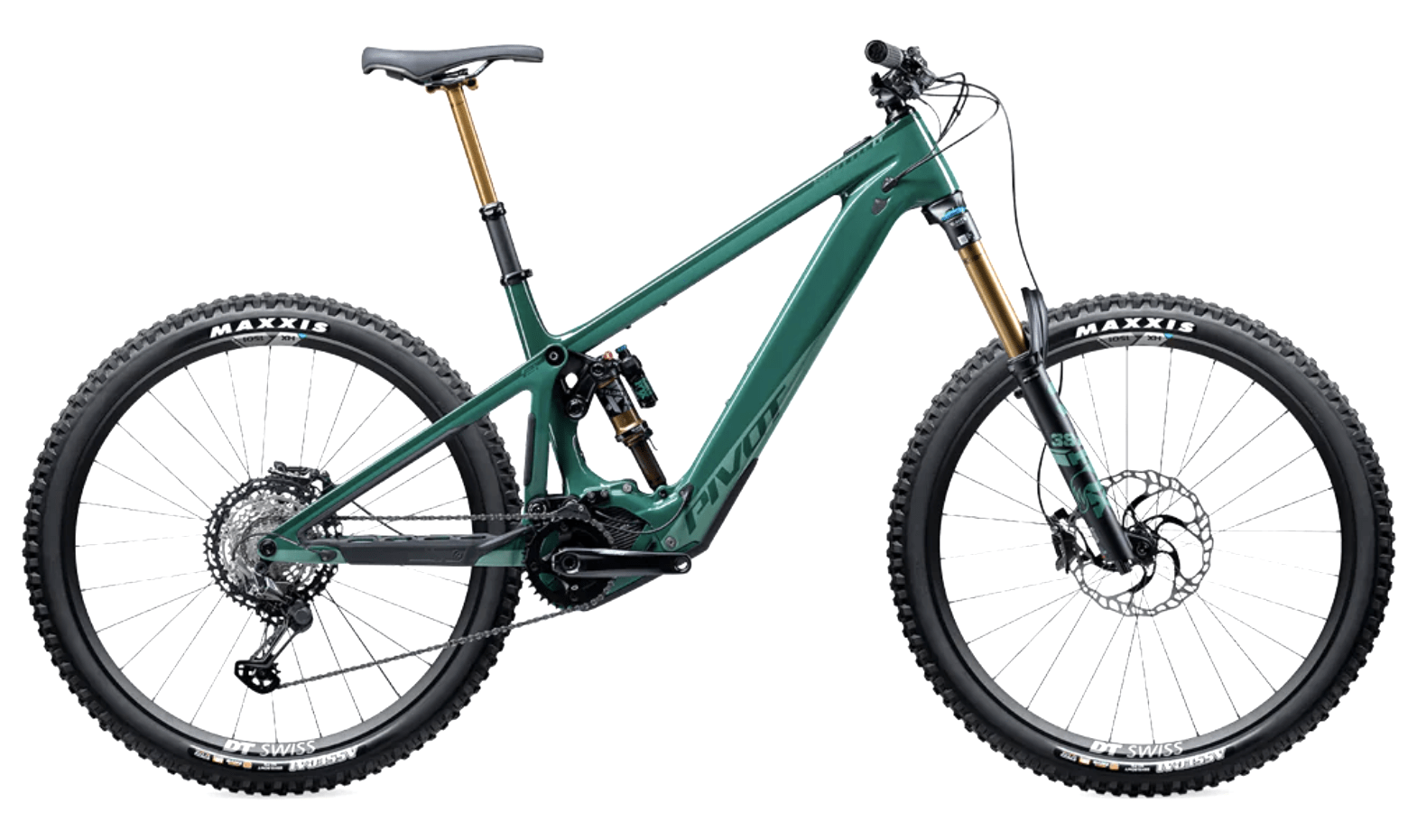August 4, 2023 - (Sweden) Dangerholm is breaking new ground once again, making the world’s lightest E-MTB – the Scott Lumen eRIDE – even lighter in his most ambitious project to date. This time the plan was as simple as it could be – build the lightest possible E-MTB using the Scott Lumen 900 SL as a base.
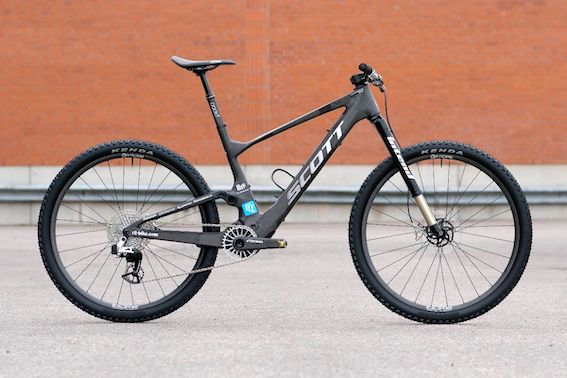
Not only was I curious about how light you can actually go, but also with the vision of creating an E-MTB that would feel very close to a regular mountain bike to ride, but with a fun boost at the push of a button.
Right out of the box, the Lumen is an incredibly versatile chassis, being capable of everything from pure XC riding to the trail and downcountry shredding. And pushing the build so far into XC territory, I figured that I might as well get a few select extra components for more heavy-hitting trail duty and get myself a 2-in-1 dream bike.
And this is why you’ll find not just the 12,90kg record weight version presented below, but also a trail/down country version of the very same bike. And if I may say so myself, at around 14kg that might be equally impressive considering the type of riding it can handle.

Frame
For those of you not familiar with the Scott Lumen eRIDE series, it’s essentially the e-bike version of the Scott Spark. Aside from having the rear suspension travel bumped up from 120mm to 130mm, and a slightly different shape to accommodate the TQ drive unit and battery system, it shares the geometry and many of the features. Most obvious is of course the fully integrated rear shock, but you also for example see the easily adjustable headset cups to change the head angle.
Impressively enough the volume of the frame is just 17% bigger than on the Spark, and that number alone tells you that this is a very discreet looking e-bike. In true Scott fashion it is also very light weight. Stripped from paint (which was around 150g) it weighs just 2072g including hardware.
As for the paint stripping itself, I prefer to do most of the work using knives when the end goal is a raw carbon fiber surface. This quite literally sounds very brutal but done correctly it’s a very safe method. It’s not faster than sanding, but it allows me to remove all the primer and possible filler with minimal impact on the carbon fiber. In fact, since I’m so careful you can even still see scratch marks from some of the sanding done at the factory when the frame comes out of the mold.
Drive Unit
Now we’re really getting to the heart of the bike – the TQ HPR50 drive unit.
The TQ HPR50 is already one of the most compact and lightweight drive unit systems on the market. So how do you improve what’s already great? This is where the TQ team came in, with a bit of help from CeramicSpeed and METI.
First of all, the bike was upgraded with a lighter-than-stock main cable. Then the truly next-level tuning began.
TQ set out to make a one-off carbon fiber housing for the internal battery, complete with proper shielding and so on. The result is a battery that retains its 360Wh capacity, but weighs 206g less. As a bonus, it also looks absolutely beautiful – it’s quite the shame to hide it away inside the frame!
The HPR50 drive unit also got to see some prototype one-off tuning, with all the bearings being replaced with CeramicSpeed bearings unique to this project. Not only does it slightly help with efficiency and making the bike feel even more like a regular bike, but it also saves a whopping 40g.
Finally, the Italian titanium expert METI manufactured custom hollow titanium mounting bolts for it. Almost half the weight of the stock steel bolts – with 32g versus 63g.
All in all the tuned TQ HPR50 system on this bike comes in at 3783g, with an extra 26g for the remote.
Drivetrain and shifting
Another area where I knew there was weight to be saved, was the drivetrain. Early on I decided to go for 11-speed. This led me to come up with a very unique, and quite experimental, derailleur setup. In essence it is two different derailleurs combined into one. The main base is a SRAM RED AXS XPLR 12-speed derailleur. But how to make it 11-speed?
The solution came to use a ”p-knuckle”, which is the black composite part housing the electronics and clutch system, from the updated SRAM RED eTap 11-speed road derailleur. It got a complete overhaul a couple of years ago, and now features the same outer dimensions and Orbital Clutch system as the 12-speed XPLR. But the internals is what makes it 11-speed.
So I simply (ahem…) took both derailleurs apart and made one unique wide range 11-speed derailleur out of them to use on this bike. And in the process I gave it a brushed looked and a bit of Dremel action.
Suspension
Hidden inside the frame sits a remote controlled 3-position RockShox NUDE 5 RLC3 rear shock from a SCOTT Spark RC, which I replaced the stock Fox shock with due to its slightly lower weight. The Fox comes with a bigger air chamber and is more trail oriented, making it the logical choice for the stock Lumen, but the RockShox is still a great performing shock. And saving close to 40g, it made sense for this special project.
Up front you find an Intend Samurai TR 130mm fork. At 1537g it is as far as I know the lightest 130mm fork currently on the market.
Brakes
The world’s lightest e-bike of course needs the world’s lightest brakes, which are the Trickstuff Piccola Carbon. But the best part with these, along with the amazingly smooth and nice lever feel, is that they’re also some of the more powerful 2-piston brakes available.
Having the lowest weight while maintaining top performance is a rare feat, and as a bonus the fully machined design is very beautiful as well. One interesting detail is the Flat Mount front C22 caliper, made possible for MTB use thanks to the Intend fork. It gives a very clean look, and is ever so slightly lighter.
Wheels
At just 945g these Pi Rope wheels featuring Duke rims and Nonplus hubs are not your ordinary e-bike wheels. Pi Rope doesn’t build their wheels with conventional steel spokes but as a system with synthetic fiber rope spokes. Holding one of these spokes in your hand feels completely surreal, as they feel just like any super light string and you literally can tie a knot with one.
The hubs are another German creation, from the rather new brand called Nonplus. Not only are they some of the lightest hubs on the market in general, but their unique freewheel mechanism featuring a ratchet system with a much bigger than normal contact surface area makes them the lightest you can get for an e-bike. To complete the wheels you find the DUKE Lucky Jack SLS4 Ultra 28 rims. This is the fourth lightweight generation of the French brands XC oriented rim, and Ultra means that it’s the lightest version offered.
“All in all, my SCOTT Lumen eRIDE 900 SL ended up being a thing of dreams. So is the stock model, but this build takes something already great and pushes it to the next level..”

Mission Accomplished
In the end this build exceeded my already high expectations, both in the weights that were achieved and also in how incredibly fun this bike is to ride.
It feels so much like a regular bike and I dare say that many would have a hard time, if not impossible, to tell that it’s an e-bike when riding it without the assistance. And this was also a concept I really wanted to push with this build, to perhaps change people’s perception about e-bikes a little bit. That an e-bike doesn’t have to be ”unrideable” if you run out of battery, and that you during a ride can opt to just have the assistance turned on when you feel like it.
Text by Gustav Gullholm aka Dangerholm







